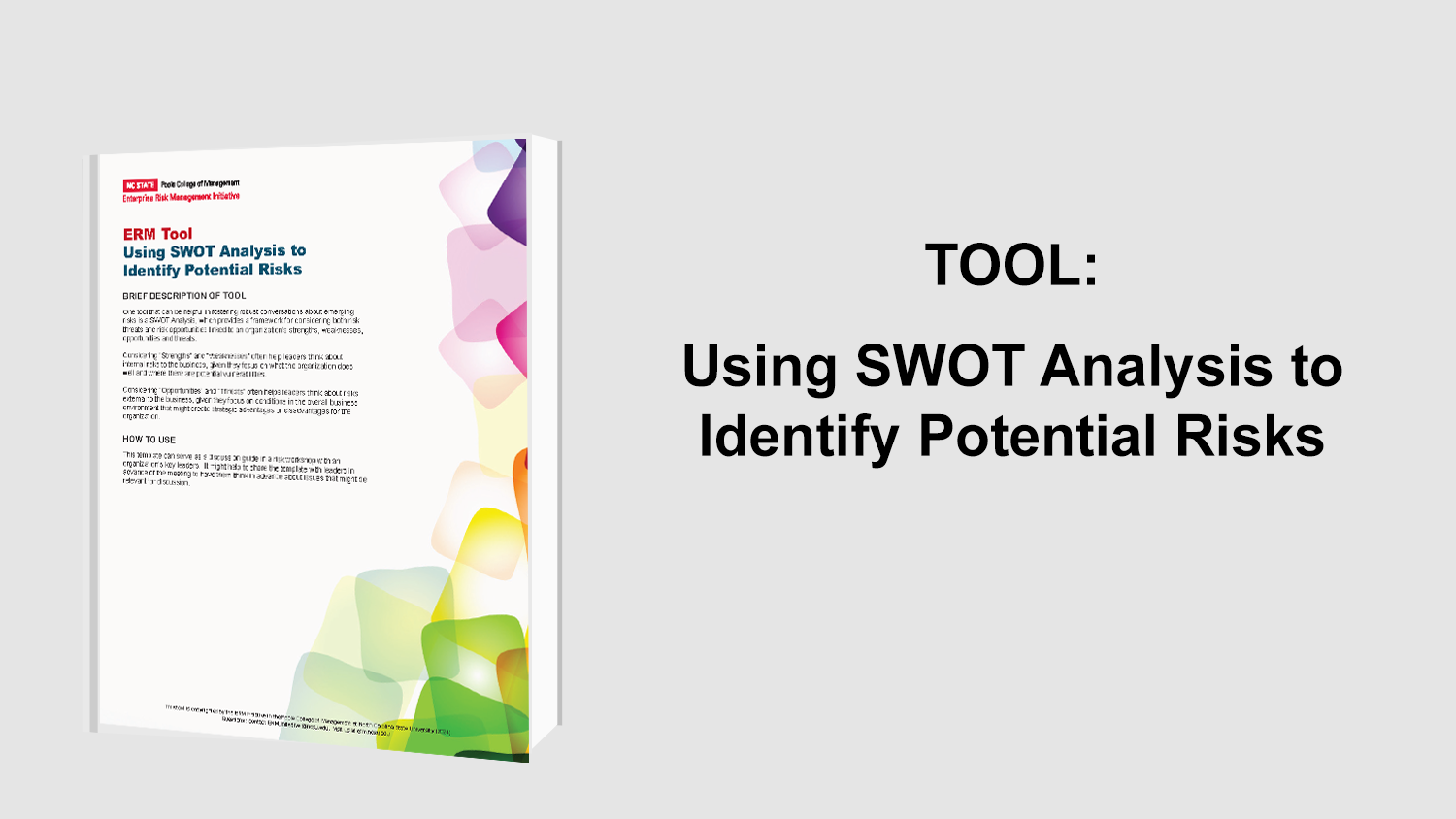Big Data, Security, and C-Suite Executives Shaping Risk Management
Future of Risk Management: Big Data?
CFO Magazine recently issued an eBook on The Future of Risk Management and in that they argue that the lack of financial metrics have hindered risk officers’ ability to evaluate the benefit of risk management investments. The ability to create a simple cost-benefit analysis of implementing an enterprise risk management system aids in decision making. A study was conducted that relates the quality of a corporate ERM systems to the value of a corporation as measured by a ratio that measures market value based on replacement cost. The study shows “mature risk management practices may have valuations of up to 25 percent more as a result”. The challenge of expressing the value of an enterprise risk management program brings to a company is notoriously difficult, but this CFO eBook argues that “big data” may provide some solutions.
Big Data and Risk Management
The increasing amount of data that companies collect is providing risk officers the ability to produce effective analytics. The most important factor of big data is it provides companies with forward-looking analytics as opposed to looking at past performance. These analyses can give CFOs insights to predict potential future risks and develop a proactive strategy to mitigate or manage the risk. Another benefit of big data is it presents the opportunity cost of not taking a risk which enhances management decision making. Big data has the power to reveal the cost of not taking a risk as well as showing the potential innovation to open new channels of growth.
Big Data and Security Risks
Security surrounding big data platforms should continuously improve making it a permanent process of a company in order to protect sensitive data. Boards of directors are legally responsible for the privacy and security obligations as a matter of good corporate governance and they must fulfill their fiduciary duties. Due to the fact that a third party could be the cause of security breach, a risk appetite, or tolerance, should be considered as part of analysis.
The benefits of big data come with the increased risk of data breaches. One of the biggest concerns across all corporations is the risk of security breaches. This is not only because those risks can damage a company’s reputation, but they also lead to penalties that come with breaches, especially at high-profile enterprises. In addition, the FTC is exploring the possibility of enacting monetary penalties for such security breaches.
Research shows that the market for big data is growing 6 times faster than the overall IT market. As a precautionary measure, companies should implement a response plan in case of a breach to be prepared for the potential risk.
Listening to the Voice of Risk Managers in Regards to Big Data
Risk officers or managers are faced with the task of proposing risk management plans to CEOs and CFOs. Unfortunately, in some environments that advice is quickly disregarded. As chief executive and financial officers become more responsible for leading risk management efforts, they are considering risk management propositions more carefully.
It also helps that risk managers are finding new ways to gain the attention of their CFOs. For instance, analytics systems help measure enterprise-wide risk and help illustrate the importance of risk management investments. Presenting risks from a financial risk management perspective can be effective when presenting to a CFO so he or she can see the financial impact of acting on or ignoring the implementation of a risk management process. In the past, firms have failed not because of an ineffective enterprise risk management program, but because they failed to take a CRO’s advice and allow a risk management process to function properly.
Big Data: The Future of ERM
Over the past few years, the uncertainty about economic conditions has impeded business planning. Many CFOs are gaining confidence in the economy again as it continues to strengthen, but they remain hesitant to take risks. As the economy changes, C-suite executives need to assess enterprise risk management programs more thoroughly to manage risks for effectively. Exploring the benefits of big data may be one of the best opportunities for advancing ERM processes so that they provide rich insights about risks on the horizon.
Original Article Source: “The Future of Risk Management,” Howard Kunreuther, Robert Meyer & Erwann Michel-Kerjan, University of Pennsylvania Press, Sept. 1, 2014.
- Types:


